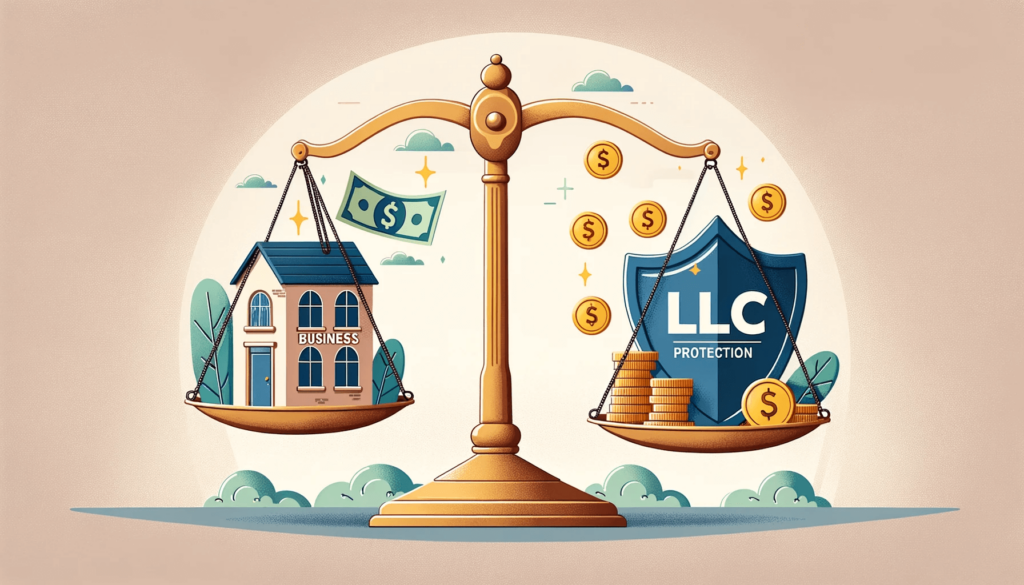Starting a business is a monumental task that requires careful planning and decision-making. One of the most critical choices entrepreneurs face is selecting the appropriate business structure. While options like sole proprietorships and corporations have their merits, a Limited Liability Company (LLC) offers unique financial advantages that can be essential for the long-term success of a business. In this article, we delve into the financial importance of setting up an LLC.
Asset Protection: Shielding Personal Finances
Importance of Separating Personal and Business Assets
One of the primary financial benefits of an LLC is the separation it provides between personal and business assets. When you operate as a sole proprietor, your personal assets, such as your home or car, could be at risk in case of business debts or lawsuits. An LLC acts as a legal shield, providing what is known as “limited liability” protection.
How Limited Liability Works
In an LLC, the business is a separate legal entity. This means that creditors and legal claims are generally directed at the business assets rather than the personal assets of the owner(s). For example, if your LLC defaults on a business loan, the lender can seize the business’s bank account but generally cannot go after your personal savings.
Tax Flexibility: Choose How You’re Taxed
Pass-Through Taxation
By default, an LLC is treated as a “pass-through” entity for tax purposes. This means that business income is not taxed at the corporate level but passes through to the individual members who report this income on their personal tax returns. This structure can be advantageous as it avoids the “double taxation” issue that corporations face.
Option for Corporate Taxation
Interestingly, an LLC also offers the flexibility to opt for corporate taxation if that is more financially beneficial. This option can make sense for businesses that plan to reinvest profits back into the company, as corporate tax rates on retained earnings may be lower than individual tax rates.
Easier Access to Business Credit and Loans
Building Business Credit
With an LLC, it is easier to build a separate business credit history. Having a distinct entity allows you to apply for loans, lines of credit, and business credit cards under the business name. A strong business credit history can help you secure better interest rates and financing options.
Separation Improves Credibility
Financial institutions often view LLCs as more legitimate and less risky compared to sole proprietorships. This credibility can lead to better terms for loans and credit, thereby saving the business money in the long run.
Profit Distribution Flexibility
No Requirement for Equal Distribution
LLCs offer significant flexibility in how profits and losses are distributed among members. Unlike corporations, where distributions generally have to be proportional to ownership, LLC members can divide profits in different ways, as agreed upon in the LLC operating agreement.
Financial Planning Advantages
This flexibility can be a critical financial planning tool. For example, if one member has a higher personal tax rate, the LLC could opt to allocate a larger share of business losses to that member to offset their personal income.
Simplified Reporting and Compliance
Lower Compliance Costs
LLCs typically have fewer reporting requirements and compliance regulations compared to corporations. This simplicity can result in cost savings, as you may not need to spend as much on accountants or compliance officers to meet legal requirements.
Annual Reports and Fees
However, it’s worth noting that LLCs still need to file annual reports and may have other state-specific compliance requirements. While these are generally less burdensome than those of a corporation, they are nonetheless essential for maintaining the LLC’s financial and legal standing.
Conclusion
Choosing the right business structure is a critical financial decision for any entrepreneur. An LLC offers a range of financial benefits, from asset protection and tax flexibility to easier access to business credit and simplified reporting. While there are costs and compliance requirements associated with setting up and maintaining an LLC, the financial advantages often outweigh these, making it an attractive option for many business owners.
